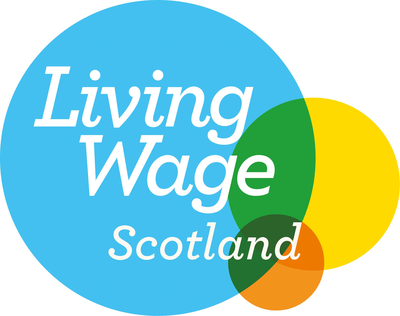By Donna Hutchison
In-work poverty is a significant issue that affects individuals and families, despite being employed. We know that in Scotland 54% of the working-age population in poverty live in working households, and over two-thirds of children in poverty, have at least one parent in work.
With the cost-of-living crisis affecting us all, more and more people once able to survive and thrive are now in crisis, unable to cover essential costs.
At Aberdeen Cyrenians, we continue to see an increase of people who are in work seeking our support. Our Direct Access Service, which is open to anyone and everyone over 16 years of age, has experienced a 58% increase in the number of individuals they support in the last 11 months. We now routinely see over 800 unique presentations per month, including 150 families (a household of 3 persons of more).
People are coming for help because, even after cutting costs to bare bones, it still isn’t enough to put food on the table or heat their home, as well as the emotional support required because of the impact of people’s health and wellbeing from the current societal pressures they face.
We now see on average 45 individuals per day compared to 27 in November 2022 – a 66% increase in daily presentations.
Since we were founded by University of Aberdeen students in 1968, we have been there for over 50,000 people. Our services are tailored to provide specialist-trauma-informed support. We offer food and essentials, a kind ear, housing support, solutions-focused support, digital and financial access support, safety, personal development, readjustment into society, discrimination support, and a place to be vulnerable.
Over the years, we have seen that in-work poverty keeps people in insufficient housing, trapped in unsafe relationships, is bad for wellbeing, and lacks development opportunities. People who are unable to meet essential costs can face debt, deprivation, or both, amongst many other things.
The solution isn’t as easy as getting a better-paid job. When you are in poverty, there are many obstacles in your path. Work opportunities become scarce when you also factor in the practical realities of work that doesn’t cover things such as increased travel costs, and childcare, on an already stretched budget.
Sadly, 10% of people in work are paid below the Living Wage and figures show that only 1 in 20 of these people move to pay above the real Living Wage within 5 years. The benefits of paying employees a real Living Wage are many and a fundamental way to challenge poverty.
Real Living Wage to Challenge Poverty
A recent Joseph Rowntree report outlines the real Living Wage and training opportunities as crucial to challenging poverty. At Aberdeen Cyrenians, we are proud to be an accredited real Living Wage employer. It is important that we demonstrate our commitment to being a fair and positive employer and we follow the Fair Work First Scottish Government Policy, which supports employers who adopt fair working practices such as the real Living Wage and investment in workforce development.
We believe in supporting our staff and that includes ensuring everyone receives a fair wage. The real Living Wage is fair and helps promote equality, can reduce financial worries, and contributes to employees feeling respected and valued.
We have training programs designed to develop and progress all staff and ensure support for service users is always of the highest standard. Ongoing training helps staff feel confident and competent in their role and we pride ourselves in supporting staff progress in their career throughout the charity.
The wellbeing of our staff is imperative, which is why our wellbeing program supports physical and mental health, such as free spinal checks, dietary workshops, and weekly breathwork sessions. These are all positive add-ons to offering the real Living Wage but contribute to developing staff and making them feel in charge of their career.
Paying a real Living Wage is, of course, voluntary, and more difficult to afford; it can and does come with more pressure on an organisation, and as a charity we have certainly felt the pinch. However, it’s important to really look at the benefits. By embracing the real Living Wage, employers not only show their values, respect, and support for staff, but financial wellness can reduce employee stress and absenteeism. For us, the benefits are many in terms of staff retention, quality of services, staff feeling valued, and this is fundamental to our mission. A real Living Wage is a win-win solution for all.
